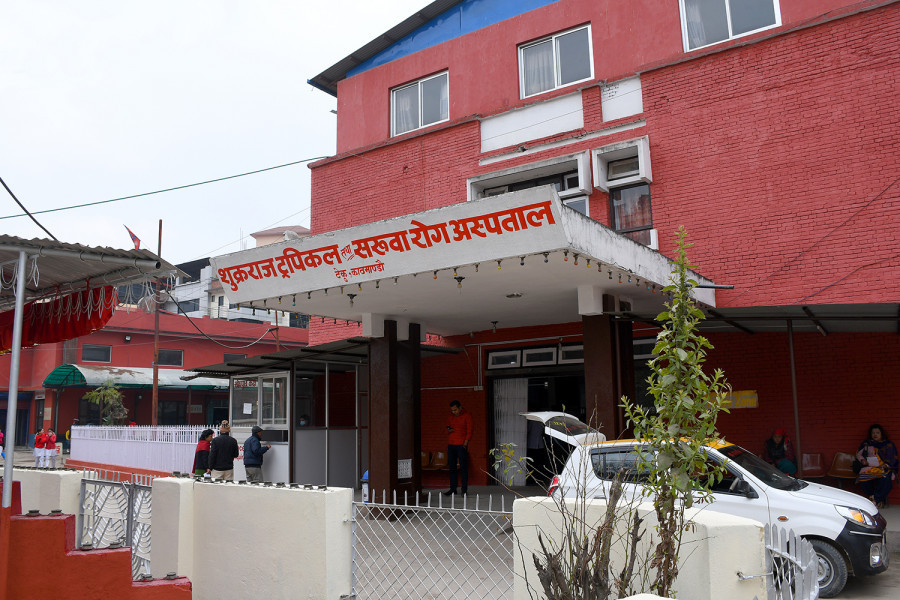Health
Better record-keeping needed to prevent outbreaks: Experts
The Epidemiology and Disease Control Division has sought help from the World Health Organization to maintain records of passengers at international health desks in Nepal.
Arjun Poudel
Nepali authorities do not maintain records of people coming to Nepal from China through various routes, despite the country’s proximity to the epicentre of the covid-19 outbreak, which has killed at least 2,118 and infected over 75,000 people.
With the direct flight from China reduced to one a week due to the outbreak, travelers are using Malaysia, Vietnam, Singapore and other routes to come to Nepal from China. But staffers manning the health desk at the Tribhuvan International Airport have stopped screening passengers from countries other than China.
"During high-level meetings, officials at the Health Ministry concede that we understand the need of record-keeping and active surveillance systems. But we are unable to implement it," Dr Bibek Kumar Lal, director at the Epidemiology and Disease Control Division, the agency responsible for containing epidemics in the country, said. "The health desk at TIA doesn’t even have records of contact details of people returning from China," added Dr Lal.
Hundreds of Nepalis have been returning to the country every day from China using different routes. Moreover, Chinese tourists are coming to Nepal in large numbers as authorities plan to welcome 350,000 Chinese tourists in 2020.
Mahendra Prasad Shrestha, spokesperson for the Ministry of Health also said the government does not have information on passengers coming from China. "We keep passengers from China, who have influenza-like symptoms, under observation at the hospital,” Shrestha said. “But we are not in a position to maintain detailed records of all passengers who have been to China recently."
The Epidemiology and Disease Control Division has sought help from the World Health Organization to maintain records of passengers at international health desks in Nepal and to implement surveillance in an effective manner, said Lal.
Despite stringent screenings at airports around the world, the UN health agency has not asked member countries to make screening mandatory. Filling out health-related forms at the airport in Nepal is still voluntary, except for passengers coming from China.
"We only have one flight from China every week on Thursday,” said Dr Nishant Thakur, chief of the health desk at TIA. “We only screen passengers coming to Nepal on that flight as we cannot screen passengers all passengers."
The government’s handling of the coronavirus outbreak is different from the way it acted during the 2014 Ebola outbreak in West Africa, a former official said. Back then, the Epidemiology and Disease Control Division set up international health desks at the Tribhuvan International Airport as well as at eight land crossings across the country. Officials at the international health desks were assigned to maintain detailed records of all passengers who had been to Africa.
"Even people serving UN agencies had to provide their details and go through the health desk," Dr Baburam Marasini, a former director at the division told the Post. "They used to complain a lot about it, but we told them the measures were taken for the safety of our people." Marasini said that authorities need to effectively implement record-keeping systems at the health desks.
Another senior doctor said that just because only one case of the virus has been recorded, in Nepal so far, it doesn’t mean the risk of an outbreak has been minimised. "We are always at risk,” Dr Anup Bastola, Spokesperson for the Sukraraj Tropical and Infectious Disease Hospital, told the Post. “During every meeting, we draw the attention of officials concerned about the risk of possible transmission of the deadly disease from the people returning from China and visiting different parts of the country,” he said.




 20.12°C Kathmandu
20.12°C Kathmandu















